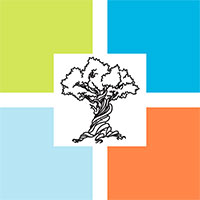Resources for the Family Caregiver
Contact: |
Davis Allen, Owner |
 |
Enhancing Care for Someone with Dementia
There are many levels of dementia that can be managed with assistance from family members and aides whether the patient is in their home or senior facility. Caring for those loved ones in the early or middle stage of dementia can be divided into three types of care:
- Assistance with the activities of daily living (ADLs) such as toileting, bathing, dressing, transferring, etc.
- Assistance with independent activities of daily living (IADLs) such as cooking, driving, shopping, using the telephone or computer, finances and managing medications. The IADLs support an independent lifestyle.
- Assistance with social interactions and maintaining the well-being of the person. Some might call this companionship care or “quality-of-life care”.
Proper dementia care that attends to the day-to-day needs of the loved one requires a mix of all three types of assistance, especially the third or companionship level. This full range of assistance will actually retard the advance of dementia. Recent studies indicate that regular exercise (something as simple as a brisk walk three times a week) affects the size of the hippocampus, the part of the brain associated with memory and special navigation. (Kirk Erickson, associate professor of psychology, University of Pittsburgh.) Scientists also cite the importance of staying mentally active. Symptoms of cognitive decline appear later in people with more “brain reserve,” so the more the brain is exercised, the greater the reserve. Social stimulation also plays a part.
Companion caregivers can help build this reserve and provide social stimulation by listening, conversing and reading aloud to the client. They play music, participate in gardening activities or go on an outing around town. They may accompany the client on daily walks. Activities are tailored to the abilities of the person and their interests.
How can you find these exceptional companions? Age at HomeCare provides extensive screening and background checks. They look for exceptional caregivers who are a cut above the rest. Age at HomeCare utilizes the Registry model of home care acting as the agent to screen and monitor the caregiver. With this model, the client pays standard rates and the caregiver is able to earn more money. This attracts a higher quality of caregiver as well as male caregivers. Clients and their families form a direct relationship with the caregiver who acts as a partner in solving the complex issues families face.
Content for this article was excerpted from St. Louis Post-Dispatch, Health Section, Feb. 20, 2014, Joan Cary, Chicago Tribune
 Age at HomeCare, a registry home health company, is owned and managed by Davis Allen, former Exec. Dir. of Sarah Care Adult Day Center. He has an MA in Human Resource Development and is a Certified Nurse Assistant. He continues to work as a companion caregiver with his own clients. All of his associates have previous direct care experience so they are attuned to the needs of their clients and families.
Age at HomeCare, a registry home health company, is owned and managed by Davis Allen, former Exec. Dir. of Sarah Care Adult Day Center. He has an MA in Human Resource Development and is a Certified Nurse Assistant. He continues to work as a companion caregiver with his own clients. All of his associates have previous direct care experience so they are attuned to the needs of their clients and families.
Age at HomeCare is grateful to Debra K. Schuster, personalized life care planning and legal assistance, for much of the content for this release. www.dschuster.com; 314-991-2602.

